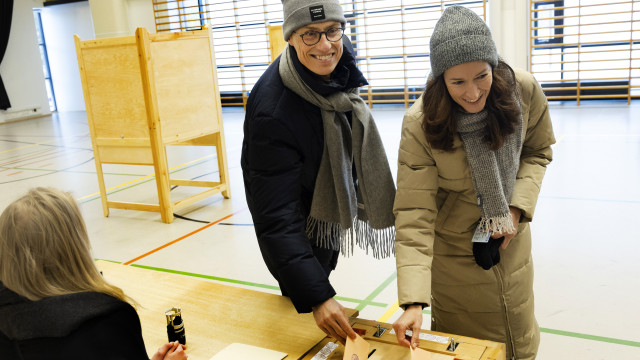Two veteran politicians face off in the second round of Finland's presidential election on Sunday, with the role of the president taking on increasing importance amid the country's NATO membership and rising tensions with neighboring Russia.
Some 4.3 million voters will have to choose between former conservative prime minister Alexander Stubb and former foreign minister Pekka Haavisto, a Green Party lawmaker who is running as an independent. Europe's changing geopolitical landscape will be the main concern for the new head of state, who runs foreign policy alongside the government and acts as commander-in-chief, albeit with limited powers compared to the prime minister.
Relations between Moscow and Helsinki have soured since Russia's invasion of Ukraine in 2022, which prompted Finland to abandon its decades-long policy of military non-alignment and join NATO in April 2023. Russia, with which Finland shares a 1,340 kilometer border, quickly warned of "countermeasures".
"The fact that we have just joined NATO is of great importance because the building of the NATO institution in Finland and what it will look like will largely be a task for the new president," Theodora Helimäki, a PhD student in political science, told AFP. Sciences from the University of Helsinki. "The first two were probably the most experienced in terms of foreign policy," she added.
Worthy rivals
Stubb came out ahead in the first round on January 28 with 27.2 percent of the vote, while Haavisto came in second with 25.8 percent, qualifying them for the second round. An opinion poll by public broadcaster Yle released Thursday showed Stubb would receive 54 percent of the vote, compared to 46 percent for Haavisto.
In the post-Cold War period, Helsinki maintained good relations with Moscow. Outgoing President Sauli Niinisto, first elected in 2012, once prided himself on his close ties to Russian President Vladimir Putin before becoming one of his fiercest critics. Niinisto contacted him directly to announce his decision to join NATO. Neither candidate expects a phone call from the Kremlin if they win the election. In August 2023, Finland saw an influx of migrants entering its eastern border without visas. Helsinki claimed Moscow was pushing migrants to destabilize it and responded by closing its border in November, a move supported by both candidates. Stubb and Haavisto, who were foreign ministers, share similar visions of the country's stance on Russia, calling for additional sanctions against Moscow and support for Ukraine. "The European Union can do much more to help Ukraine," Haavisto said during a televised debate on Thursday evening. "Ukraine's way is our way and right now they are fighting for the freedom of Europeans. They deserve all the support we can give them," Stubb agreed.
Nuclear weapons
For Helimäki, the differences between the candidates come down to nuances on certain issues, such as the storage or transport of nuclear weapons in Finland. Haavisto does not want them on Finnish soil, although it recognizes that as a NATO member the Scandinavian country must participate in exercises related to the alliance's nuclear policy.
Stubb, meanwhile, believes the country should not rule out "any part" of NATO's nuclear deterrent. Given the lack of significant foreign policy differences, voters are likely to make up their minds based on their political preferences, said Matti Pesu, a leading researcher at the Finnish Institute of International Affairs. "While Stubb's liberalism is related to Western organizations and Western values, Haavisto has a more global emphasis: UN, peace, development," Pessu told AFP. In terms of personality, Stubb seems like "a modern politician and quite open in the way he talks", while Haavisto "is a more traditional, more careful Finnish politician".
Voter turnout in the first round was 75 percent. Polling stations open at 9:00 a.m. local time (07:00 GMT) and close at 8:00 p.m. /BGNES, AFP
Finland is electing a president in a new geopolitical landscape







